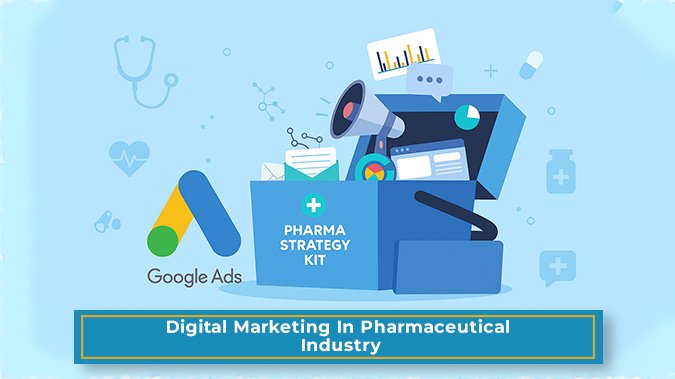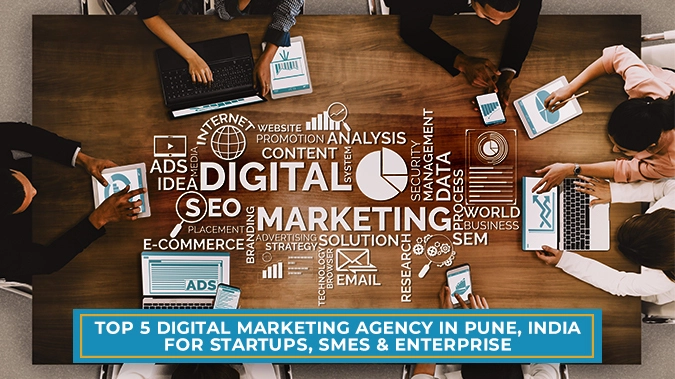Pharma Digital Marketing Strategies

When it comes to major industries, the pharma digital marketing is not like other markets. In the past, there has been opposition to innovation and new technologies, particularly in the pharmaceutical business and areas like digital marketing.
On the one hand, the stability of the market is to blame for this. On the other hand, industry marketers do not strongly support the adoption of new technologies. Until date, digital marketing in pharmaceutical industry and pharmaceutical marketers have frequently seen face-to-face interactions with a doctor or pharmacist as being more significant than online interactions.
Pharmaceutical firms rarely care about their clients, despite all the sentiments they convey in their brand presentations or as part of their purpose. The client support service or other assistance is provided in a formal manner. In the ideal case scenario, only medical experts engage in communication and continuing customer support. This blog article will examine how digital marketing may change everything and give customers in the pharmaceutical business a more individualised experience.
Five Techniques for Digital Marketing In Pharmaceutical Industry
-
Development Of Content With A Purpose
The fact that pharmaceutical corporations are no longer the sole gatekeepers or producers of the information about their treatments or products is one of the most significant changes brought about by the impact of digital technology on the pharmaceutical sector.
People now have easy access to a variety of pharma-based insights thanks to internet communities, smartphone applications, and a multitude of web information. You may considerably expand your audience by producing focused, value-driven brand content for pharma digital marketing that gives potential or present patients access to pertinent information. You may expand your audience, build trust, and establish your brand as a thought leader by addressing frequent patient pain points in a motivating, captivating manner and by being transparent.
-
Virtual and augmented reality
The consumer VR software industry is anticipated to increase in value to $77.5 billion by 2028. Pharmaceutical firms can use this immersive technology to dismantle barriers between their organisation and clients, partners, patients, or consumers as VR and AR technology becomes a more integral part of our daily lives.
Even though the pharma industry is just beginning to integrate AR and VR, some businesses have already started employing immersive apps and strategies. Through virtual clinics and product presentations, these technologies may provide information and care while also putting people at the centre of the business.
-
AI-enabled chatbots and assistants
Numerous businesses use messaging services like Facebook Messenger or WhatsApp to interact with customers and start deep conversations as a means of effective pharma digital marketing. This trend offers a special chance for the pharmaceutical sector to have in-depth interactions with clients, patients, or partners.
It is anticipated that many more businesses in the sector will follow suit in the not-too-distant future as pharma brands like Johnson & Johnson and MedxNote use chatbots as integral aspects of their marketing and communications campaigns. Pharma brands can increase productivity while enhancing their overall customer experience (CX) offerings by utilising autonomous machine learning chatbots to conduct key tasks, improve organisational efficiency, and respond to client, patient, or customer inquiries. By the end of 2026, CX is predicted to overtake price and product as the primary brand differentiator.
-
Influencers
70% of millennials are affected by peer recommendations, 90% of 18- to 24-year-olds believe medical information found on social media, and one third of American people look up medical conditions online. Therefore, there is a significant opportunity for pharmaceutical companies that partner with reputable industry thought leaders and influencers.
Amcal Pharmacy is a prime illustration. The company partnered with Jack Perkins, a diabetic supercar driver, to raise brand recognition and educate consumers. The pharmacy gained visibility to the supercar driver's 21,000 Instagram followers by posting Instagram stories on his personal struggle and how Amcal helps him manage his condition. Jack's sponsored article (above) further received 1,397 likes, 33 comments, and a 7% engagement rate.
-
Using Blockchain
Transparency and trust are crucial for success in the digital era. Being open and trustworthy is no longer optional in the pharmaceutical industry since it now provides a much more direct line of communication between supplier and consumer. Implementing blockchain technology as part of your digital marketing plan could support organisational growth and evolution, however this has not yet been fully explored.
By 2034, it is anticipated that the blockchain will have a around $164.9 billion market, and in addition to providing easy access to vital patient data and assisting in the reduction of fraud and scams, it has the potential to dramatically improve the relationship between medical donors and recipients. Even though these aspects aren't specifically related to marketing, blockchain technology has the potential to help your brand develop over time by demonstrating efficiency, accuracy, and transparency.
Conclusion-
The COVID-19 epidemic has caused changes in the pharmaceutical industry and pharmaceutical marketing strategies that have been long overdue. And they took place practically immediately. Customers have long placed orders for medications, vitamins, and nutritional supplements with subsequent pick-ups on the websites of online pharmacies and marketplaces. They now want their medical supplies delivered to their homes.
Online pharmacy purchases are becoming more and more common. Online pharmacies are expanding steadily, and there is a fair amount of confidence in specialised medical websites. Additionally, despite widespread scepticism regarding medication sales online, the target audience's behaviour patterns are evolving, and this process of transformation is permanent.
In other industries, the majority of people have already tried ordering products online, and this practise is beginning to take hold as a habit. Customers who personally know the internet pharmacies are persuaded that this method works. All of this demonstrates the potential for future growth of digital marketing within the pharmaceutical sector. This will consequently have an important effect on industry brands and help to determine their future pharmaceutical marketing strategies.






